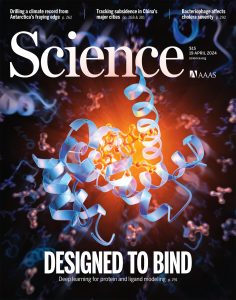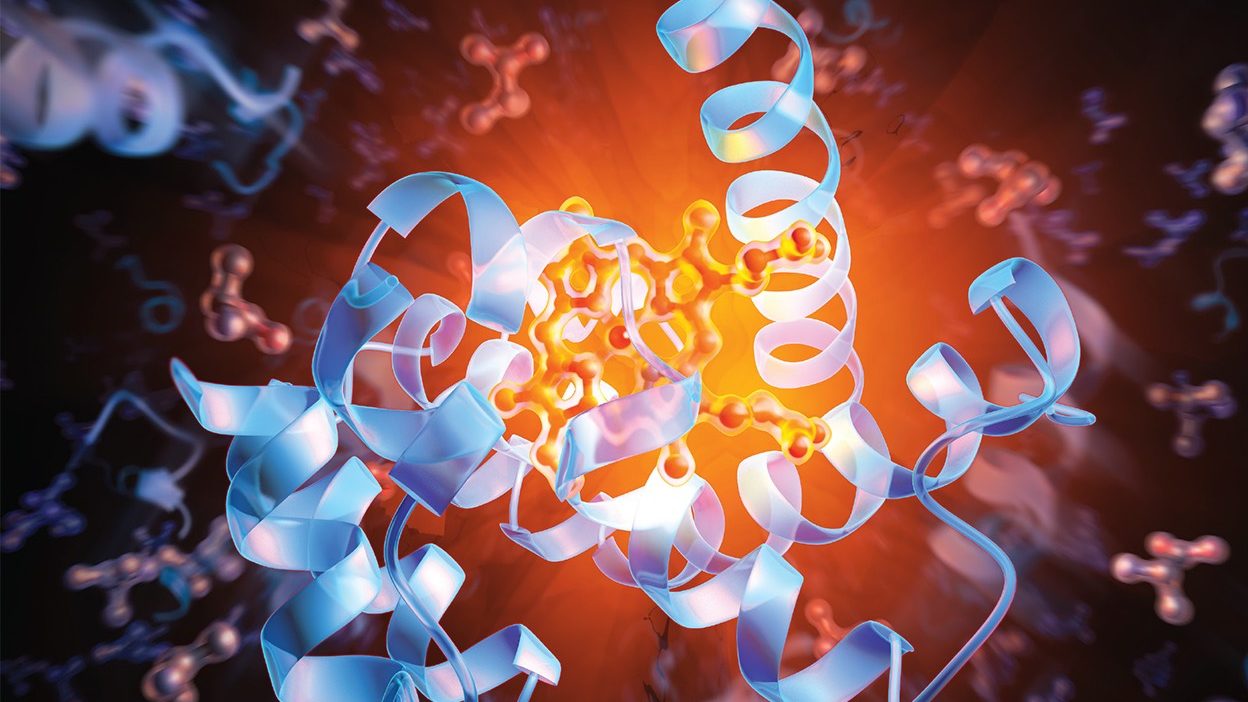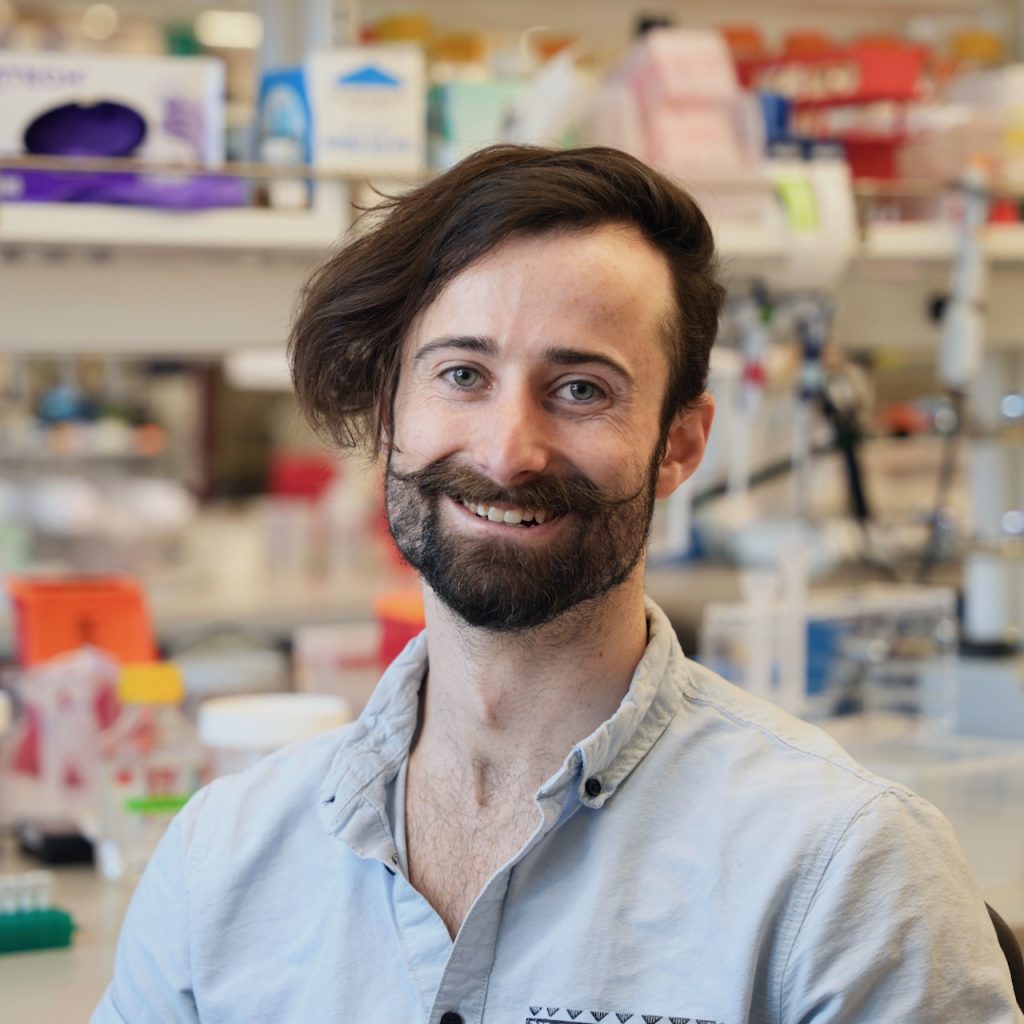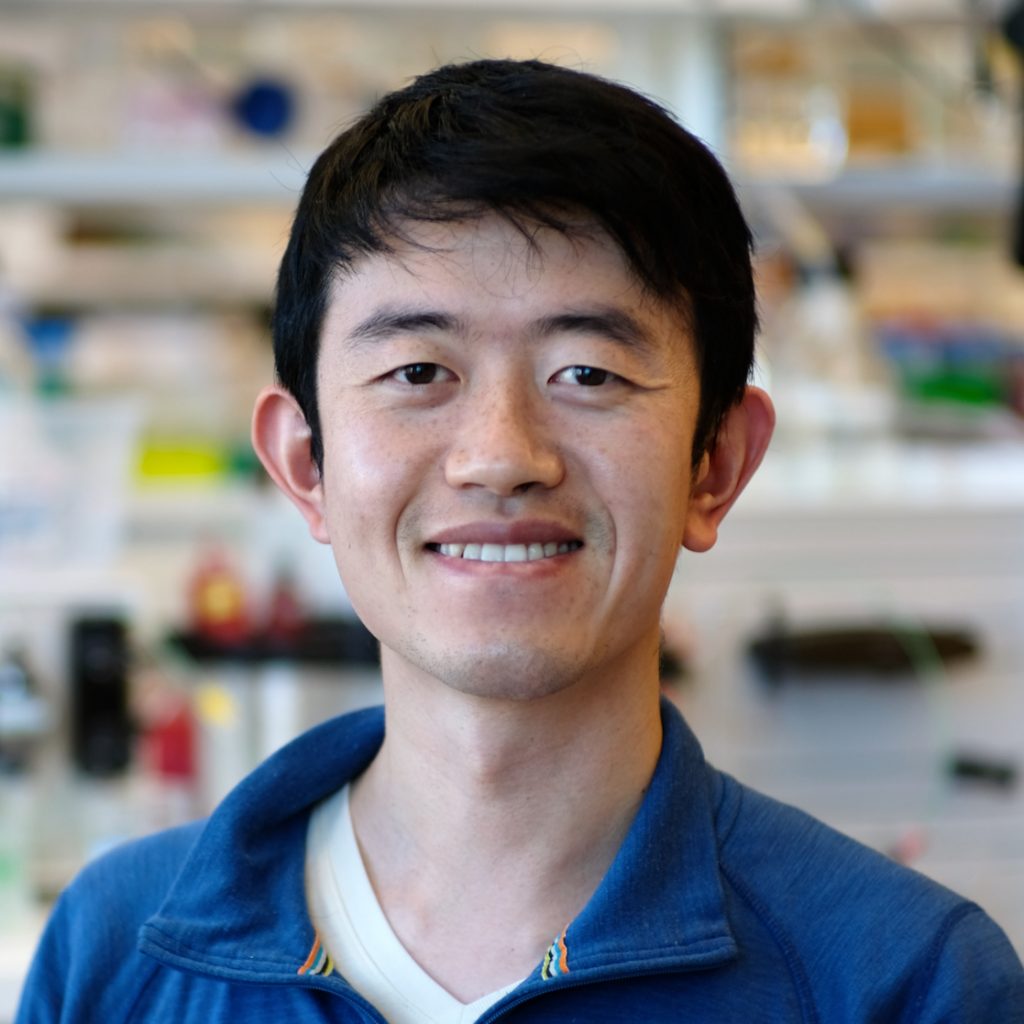Today we report in Science an AI upgrade that significantly enhances scientists’ ability to model and generate biomolecules. The protein modeling tool RoseTTAFold All-Atom and the design tool RFdiffusion All-Atom are now freely accessible to the scientific community.

In the rapidly evolving field of AI-driven protein science, this advance builds upon the success of AlphaFold (a tool from Google DeepMind), and RoseTTAFold and RFdiffusion (both developed here).
This project was led by recent postdoctoral scholar Jue Wang and graduate students Rohith Krisha and Woody Ahern. It included collaborators from the University of Sheffield, Seoul National University, and the Core R&D Labs here at the Institute for Protein Design.
RoseTTAFold All-Atom
In the new study, we first re-trained RoseTTAFold so that it could accurately model how proteins interact with common molecules found in living cells such as DNA, RNA, metal ions, sugars, and other small chemicals. We show that RoseTTAFold All-Atom can predict in detail how particular proteins and DNA stretches interact, how certain drug molecules may bind to human receptors, and more.
“We made RoseTTAFold All-Atom free so that scientists everywhere can make new discoveries about the molecules that run all of biology. It may enable them to better understand the molecular mechanisms of many diseases, and this may unlock new treatments,” said Krishna.
RFdiffusion All-Atom
We then used this upgraded AI model to enhance RFdiffusion, an already published and widely used generative AI system that can be used to create proteins unlike any found in nature. Laboratory testing confirmed that RFdiffusion All-Atom can produce proteins with pockets that bind to specific compounds, including the steroid digoxigenin, the iron-rich blood molecule heme, and chemicals used by plants to absorb sunlight. This demonstrates that a wide variety of advanced biological functions can now be generated using AI.
“Our goal here was to build an AI tool that could generate more sophisticated therapies and other useful molecules. For instance, researchers can now design proteins that shut down specific disease-causing molecules, paving the way for precise and effective treatments,” said Ahern.
Funding
This research was supported by The Audacious Project, Open Philanthropy Project, Bill and Melinda Gates Foundation, and several others. Computational resources were provided by Microsoft and the National Energy Research Scientific Computing Center. A full list of funders can be found in the paper.
Generalized biomolecular modeling and design with RoseTTAFold All-Atom
Authors: Rohith Krishna, Jue Wang, Woody Ahern, Pascal Sturmfels, Preetham Venkatesh, Indrek Kalvet, Gyu Rie Lee, Felix S. Morey-Burrows, Ivan Anishchenko, Ian R. Humphreys, Ryan McHugh, Dionne Vafeados, Xinting Li, George A. Sutherland, Andrew Hitchcock, C. Neil Hunter, Alex Kang, Evans Brackenbrough, Asim K. Bera, Minkyung Baek, Frank DiMaio, David Baker.
Published in: Science [Full access link]



